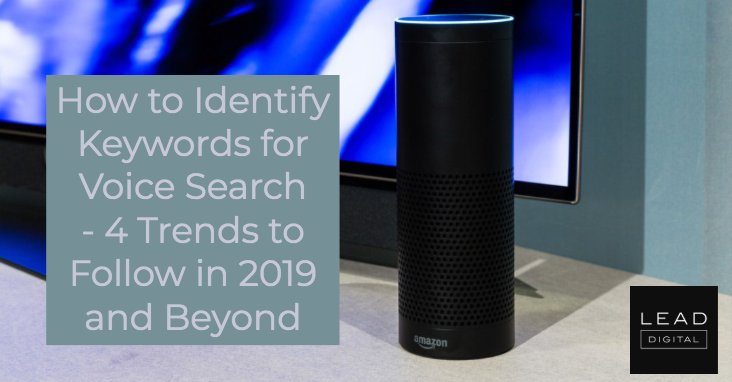 Voice search is poised to have a significant impact on marketing.
Voice search is poised to have a significant impact on marketing.
It will comprise fifty percent of all searches by 2020, according to ComScore — making this an exciting time to ‘be found’. In this article, we share how to identify and use the right keywords in your voice search optimization journey.
Google Voice search was introduced in 2013 and since then, has revolutionized the way people ask queries and look for products or services, simply because it is fast and effective. Whether you are a service provider or retailer, an upcoming business or a well-known brand, it’s time you prioritize voice search as a marketing tool.
Let’s understand why…
But first, we look at some crucial statistics to set the context:
- According to SEOExpert Bradley Shaw’s voice search statistics for 2019, 61 percent of people used voice search when they were occupied (for example, cooking) and 30 percent used it for faster search results (as opposed to typing in queries).
- BrightLocal reported that 58 percent of consumers used voice search to find local businesses in the last 12 months.
- 52 percent of voice-activated speaker owners want to receive information about deals, sales, and promotions from brands, while 39 percent use their voice-activated speakers to find business information, according to Think with Google, insights on consumer behavior.
- Microsoft’s 2019 Voice Report found that 19% of respondents use Microsoft Cortana, 36% use Siri, 36% use Google Assistant, 25% use Alexa.
Voice search is not only shaping the way people search but is also reshaping consumer behavior, making it a new battleground for marketers. Voice search queries are different from regular search queries and to feature on Google Search Results, you will need to do things unconventionally.
Let’s understand how it works.
The Voice Search Journey
From making phone calls to looking for keywords on the web using ‘Say your Search Keywords’, Google’s voice search has evolved to be elegant, relevant, and contextual. The Hummingbird update emphasized on semantics in search queries. With this, user search intent became a fundamental element of search. As a step further to enhance the user’s search experience, Google started using it’s Artificial Intelligence, Machine Learning-driven RankBrain algorithm to identify searcher’s intent based on keywords, location, and personalization among many other factors.
Voice search is used for quick answers or when a user is about to take an action, making semantics and contextual relevance more important. Although voice search results are still not perfect, you can prepare your content around keywords based on how it is being used today. – Read more



